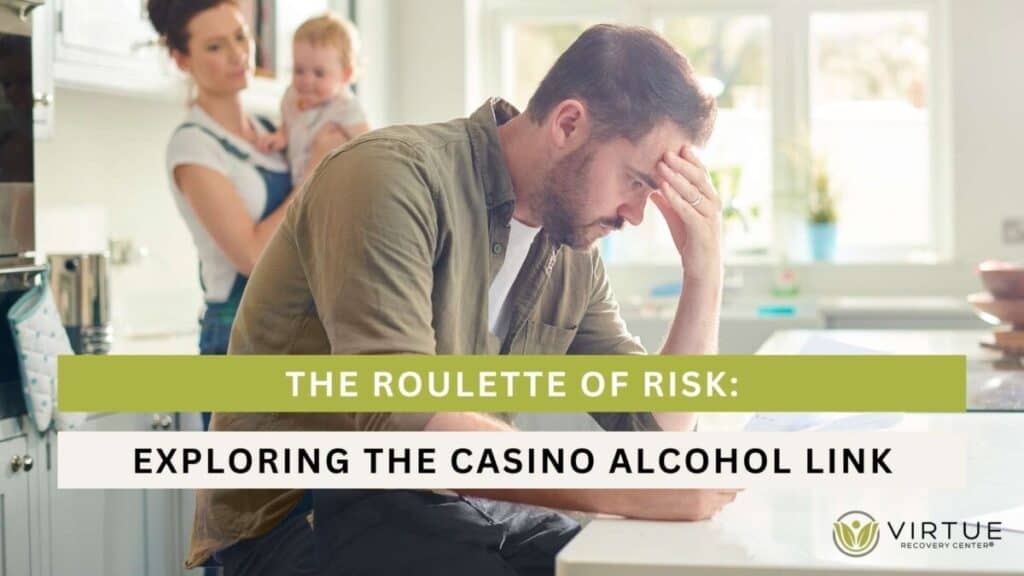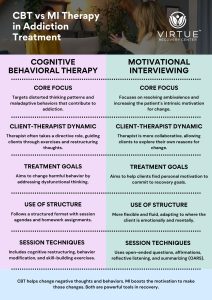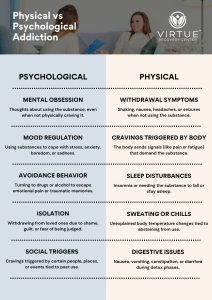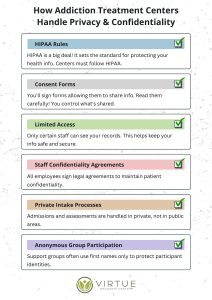Key Takeaways
- Historical Context: For quite a long time, there has been a link between casinos and alcohol consumption that is closely intertwined and has become a critical factor in shaping gambling behaviors and alcohol abuse patterns.
- Cognitive Effects: Alcohol interferes with mental abilities and the decision-making process in gaming institutions, becoming a trigger for more rash decisions and financial implications.
- Regulatory Influence: Laws and regulations have been the central pressure in the gambling and drinking culture, changing and having significant societal results.
- Integrated Treatment Needs: It is essential to provide integrated, multidimensional therapies to people suffering from co-occurrence of gambling and alcohol use disorder.
- Preventive Measures: Education and casino policies should be used in any practical way to eliminate the problem of gambling and alcohol consumption.
- Community and Individual Impact: The relationship between gambling and alcohol usage poses some of the most profound problems for the individual as well as the social realms; thus, the call for interventions is necessary, and treatment alternatives for the affected must be made readily available.
The study of the intimate connection between casino culture and alcohol use shows that there are serious social and psychological effects. The increase in Problematic Gambling (PG) and its link to Alcohol Use Disorders (AUDs) shows the necessity of a specific treatment. Effective prevention and treatment methods should be created to deal with the problems of gambling and alcohol addiction, which are closely related.
The government policies for casinos seem to be the ones that promote higher alcohol consumption among gamblers, which is a worrying social trend. This is a problem that is getting bigger, and it makes people untrustworthy of each other; thus, society becomes divided, which can be dangerous. The situation is getting worse as more people are beginning to drink alcohol.
The Historical Link Between Casino Culture and Alcohol Consumption
Alcohol and Casino Culture: A Historical Perspective
Evolution of Gambling and Alcohol Use
- For the last 3,000 years alcohol use and gambling have been together with examples of dice-making in Mesopotamia and card games in China.
- In the United States, the Continental Congress in 1774 issued declarations that warned about the dangers of gambling and thus showed early social disapproval of such risky behaviors.
Alcohol as a Strategic Tool in Casinos
- For a very long time, casinos have been using free alcoholic drinks as a way to improve the customer experience and thus make them gamble more freely.
- Drunk gamblers are usually more impulsive, so they bet in an unplanned way and put higher stakes than the sober ones.
Regulatory Changes and Cultural Shifts
- The Prohibition period of the 1920s, which prohibited both alcohol and gambling, strangely enough, gave rise to the emergence of underground gambling and the profiteering of mob organizations.
- Gambling’s legalization in the 1970s resulted in the gambling industry’s boom all over the entire US.
- The landmark 1987 case of California v. Cabazon Band of Mission Indians that was held in the Supreme Court of the United States of America was a significant milestone in the history of tribal lands because it allowed for the tribal lands to be able to run their gambling operations.
Modern-Day Implications
- Nowadays, a lot of people are against the presence of alcohol in casinos because they believe that it leads to greed and lowers the moral attitude towards more serious problems like prostitution.
- The development of the global online gambling industry creates new problems in controlling the relationship between alcohol consumption and gambling activities.
- Studies have proven that alcohol makes gamblers more reckless, and they regret their decisions, which is why personal responsibility in digital gambling environments should be stressed.
Psychological and Social Factors Encouraging Alcohol Abuse in Casinos
Cognitive and Behavioral Impacts of Alcohol in Casinos
- Cognitive Distortions and Decision-Making: Excessive alcohol intake usually leads to the deterioration of important cognitive skills necessary for gambling, like filtering intermittent factors, reacting quickly, and thinking ahead. Alcohol can be the cause of cognitive deficiencies like overconfidence, illogical thinking, and the illusion of success, as expectations and perceptions change our subconscious mind.
- Increased Risk-Taking Behaviors: The studies have proved that the people who drink a lot of alcohol, usually make bigger and riskier bets while gambling than those who do not. This attitude is usually noticed when alcohol is easily accessible, which in turn results in an overall increase in gambling. This kind of behavior may lead to the worst mistakes and the possible loss of a lot of money.
- Variability in Gambling Behavior: The empirical data proves that the behavior of people becomes more unstable and irrational when they drink alcohol. This habit is most pronounced among the people who play simulated gambling games like slot machines, where they usually make larger bets than when they are sober. The easy availability of alcohol is the cause for more daring and risky gambling activities, which usually end up in huge financial losses.
Social and Environmental Influences
- Influence of Casino Environment: The provision of free alcohol to winners in casinos and the promotion of high-risk gambling behavior are two major problems that are usually associated with alcohol and gambling. Moreover, the youth often go to bars and nightclubs, which are connected with gambling culture; thus, drinking becomes a routine for them. The fact that only beer and liquor are available in these places makes it easy to get drunk often, which can be the cause of lifelong drinking problems.
- Gender Differences in Gambling and Drinking: Recent research has revealed that men and women usually act differently in the case of alcohol and gambling. Men usually start drinking heavily at a younger age which results in them behaving irresponsibly and immaturely. While they are gambling, they usually keep on drinking heavily, and thus, their drinking habits become worse with each bet. This cycle can lead to men not being able to control their gambling urges, thus depleting their savings and causing financial hardships that they usually cannot afford.
- Comorbidity of Gambling and Alcohol Use Disorders: People with Alcohol Use Disorder (AUD) are more prone to gambling addiction, and vice versa. The overlapping genetics and brain components of these disorders call for a treatment plan that deals with both issues at the same time.
Implications for Treatment and Prevention
- Importance of Integrated Treatment Approaches: Gambling and alcoholism often go together, so a multidimensional wraparound program is necessary. Our proposed program includes three stages: The main issues are problem screening, specific intervention, and scientific treatment. Besides, using the strong existing biological processes as a basis for creating more efficient interventions is also an advantage.
- Educational Efforts for Risk Awareness: Educational activities directed at casual gamblers and social drinkers should stress the dangers of these behaviors when combined. These methods can greatly help lessen the negative effects on both people and society.
Impact of Casino-Related Alcohol Abuse on Individuals and Communities
Impact on Individual Health and Behavior
- Financial and Psychological Consequences: Alcohol consumption in casino settings is associated with the fact that people make larger average bets and lose all their money much faster during gambling sessions. This not only results in financial difficulties but also causes serious psychological problems like stress and anxiety.
- Health Risks: Excessive drinking, together with the stress of gambling, can cause different health problems, for instance, mental disorders and cognitive impairments. Almost a fifth of people with Alcohol Use Disorder also have Gambling Addiction, which makes the recovery more complicated and treatment more difficult.
Community and Social Impacts
- Alcohol-Related Crimes: Liquor stores are usually located near casinos, which results in the rise of alcohol-related incidents and crimes like drunk driving, domestic violence, and public intoxication. These dangerous activities not only put the people who are doing them in danger but also pose a great risk to others in the community.
- Suicide Risk: Mental illnesses usually result in a person’s life being ruined. To illustrate, statistics reveal that 20% of gamblers may be in a state of deep depression because of their disorder, and some even commit suicide. This is a major problem of our time. Just like the video gamers and drinkers who are trapped in addiction cycles, they also do not have a personalized wellness plan that is suitable for their needs. Thus, it hinders them from being able to recover effectively.
Treatment and Prevention Strategies
- Integrated Treatment Approaches: The best way to deal with gambling and alcohol disorders at the same time is through a comprehensive method that includes both psychological treatment and substance abuse management. This method is the cornerstone of a successful recovery and the main factor in the development process.
- Community and Economic Considerations: Socioeconomic factors are the main reason for addiction vulnerability. People with lower socioeconomic status usually have more stressors and fewer resources to deal with them. Thus, they are more prone to substance abuse and gambling problems. Hence, the treatment providers should take into account the presence and efficiency of community support mechanisms to design successful strategies for these people.
Research and Observations
- Impact on Traffic and Public Safety: The research evidence shows a strong connection between casinos and the number of alcohol-related motor vehicle accidents in an area, which sheds light on the wider public safety issues related to the alcohol culture at casinos.
- Employee Health Patterns: Research on casino workers has revealed that even with some positive changes in gambling and drinking habits, the risk is still high, and many of them are experiencing severe depression and dissatisfaction in their personal lives because of gambling disorders. It is of great importance to understand this problem as it will help in the creation of specific employee wellness programs.
Strategies for Mitigating Alcohol Abuse in Casino Settings
Policy Implementation
- Establishment of Alcohol Policies: Every casino should have a well-defined alcohol policy stating the procedures for responsible alcohol sales. The policy should be designed to prevent patrons from getting too drunk and include ways of dealing with situations when they do.
- Restrictive Service Measures: It is possible to take some measures by casinos to eliminate the problem that comes from individuals drinking a lot of alcohol. Alcohol as a health hazard can be avoided by implementing the following steps:
-
- Restricting the number of alcoholic drinks each person can have.
- Providing non-alcoholic beverages such as water and soda.
- Offering meals.
Policies such as these could reduce the possibility of people getting drunk, which may eventually lead to incidents.
Support and Prevention Strategies
- Promoting Responsible Gambling: Educational programs on gambling and alcohol consumption risks should be accessible to patrons. It entails putting up material on gambling addiction and where to access help, like contacting Virtue Recovery Center.
- Community and Employee Support: The casinos and local organizations must work together in this respect since the community’s health should be a priority. Thus, they should support alcohol abuse prevention programs. Additionally, employers should provide employees with the help they need through a program that will provide addiction treatment, resulting in a healthier working environment.
Emergency and Safety Procedures
- On-site Medical Assistance: Casinos need to hire personnel with medical skills who can be present on-site or called to address alcohol-related emergencies. This includes preparing an emergency reaction plan for alcohol poisoning and similar health issues caused by excessive drinking.
- Coordination with Local Authorities: Casinos need to maintain a good working relationship with local law enforcement and emergency services to handle cases of severe intoxication or alcohol-induced unruliness effectively.
Responsible Gaming and Alcohol Consumption Practices
- Setting Personal Limits: The casino can also limit gamblers’ excessive spending of money and time by preventing compulsive gambling and alcohol abuse. This means that customers should be educated on how to drink and gamble responsibly, no matter the situation.
- Self-exclusion Programs: Besides the self-exclusion programs and help to those with gambling or alcohol problems, preventive measures can be very effective. These programs make it possible for people to exclude themselves from the casino for a certain period of time, thus preventing them from gambling and reducing the risk of relapse.
Conclusion
This article has been a journey through the intertwined connection of alcohol and gambling in casinos, from their historical link to their psychological effect on people and finally to the broader social problems. It is obvious that this combination multiplies the risks and consequences for individuals, thus creating a big burden on communities that are dealing with the aftermath of these addictions. These challenges can be solved if we take preventive measures, responsible policy implementation, and personalized treatment interventions to deal with the complexities of gambling and alcohol use disorders.
Recognizing the intertwining nature of casino gaming and alcohol consumption, which are two of the main factors contributing to social issues, is a realization that necessitates multi-level intervention and social support. Undoubtedly, the role of educational programs, the development of reliable treatment programs, and the implementation of responsible gaming and drinking practices cannot be underestimated. Choosing recovery is an essential first step for those mired in addiction. If you have decided now or a loved one is ready to begin their journey to recovery, then calling Virtue Recovery Center at 866-461-3339 can be a life-changing decision. In this process, the strength of the foundation for healthier people will be reinforced, leading our society to be healthier.













